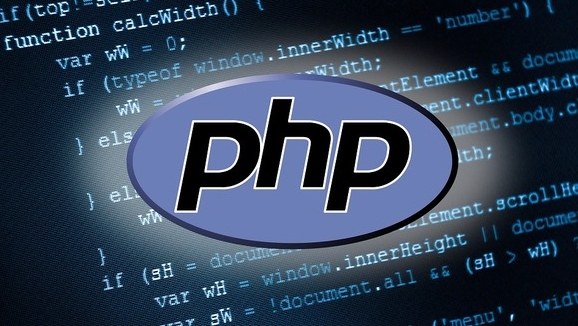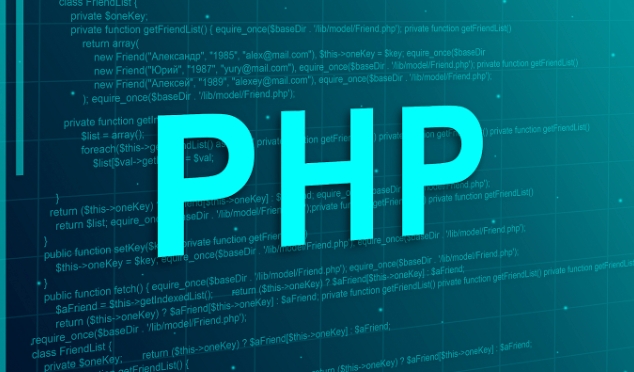Use the json_decode function and set the second parameter to true to convert the JSON string to PHP array; 1. The usage is $array = json_decode($jsonString, true); 2. If the second parameter is not added, the stdClass object will be returned; 3. Make sure that the input string is valid JSON, otherwise it will return null; 4. You can check for errors through json_last_error(); 5. Common errors include format problems such as unclosed quotes, redundant commas, etc.; 6. After the conversion in the example, you can access the corresponding value through the array key; as long as you pay attention to the format and parameter settings, the conversion can be completed smoothly.

When processing API data or front-end interactions, you often encounter situations where you need to convert JSON strings into PHP arrays. This operation is actually not complicated. PHP provides ready-made functions to complete this task.

Use json_decode function
The most common method in PHP is to use json_decode function. It was originally used to convert JSON strings to PHP objects, but as long as you add a parameter, you can convert it directly into an array.

usage:
$array = json_decode($jsonString, true);
- The first parameter is your JSON string.
- Setting the second parameter to
truemeans that the returned array is not an object.
If you don't add the second parameter, the return is a stdClass object, which may be inconvenient when processing data.

Notes:
- Make sure the entered string is indeed in valid JSON format, otherwise
nullwill be returned. - You can check whether there is an error by
json_last_error(). - If you are not sure if the data source is reliable, it is best to verify or filter first.
Check if JSON is valid
Sometimes the JSON string we get may be in the wrong format, so you need to verify whether it is legal first.
You can write this way:
json_decode($jsonString);
if (json_last_error() === JSON_ERROR_NONE) {
// is a legal JSON
} else {
// Illegal, errors need to be handled}Common errors include:
- Coding issues (such as Chinese characters are not escaped)
- There is an extra comma at the end
- Quotes are not closed, etc.
Example description
Suppose you have the following JSON string:
'{"name":"John","age":30,"hobbies":["reading","coding"]}' After using json_decode($jsonString, true) , you will get a 2D array with a clear structure and can be accessed like this:
echo $array['name']; // Output John echo $array['hobbies'][0]; // Output reading
Basically that's it
In general, converting JSON strings to PHP arrays only requires one function call, but in actual development, you should pay attention to format correctness and return type selection. As long as you pay attention to these small details, there will generally be no problems.
The above is the detailed content of How to convert json string to php array?. For more information, please follow other related articles on the PHP Chinese website!

Hot AI Tools

Undress AI Tool
Undress images for free

Undresser.AI Undress
AI-powered app for creating realistic nude photos

AI Clothes Remover
Online AI tool for removing clothes from photos.

Clothoff.io
AI clothes remover

Video Face Swap
Swap faces in any video effortlessly with our completely free AI face swap tool!

Hot Article

Hot Tools

Notepad++7.3.1
Easy-to-use and free code editor

SublimeText3 Chinese version
Chinese version, very easy to use

Zend Studio 13.0.1
Powerful PHP integrated development environment

Dreamweaver CS6
Visual web development tools

SublimeText3 Mac version
God-level code editing software (SublimeText3)

Hot Topics
 Performance optimization tips for converting PHP arrays to JSON
May 04, 2024 pm 06:15 PM
Performance optimization tips for converting PHP arrays to JSON
May 04, 2024 pm 06:15 PM
Performance optimization methods for converting PHP arrays to JSON include: using JSON extensions and the json_encode() function; adding the JSON_UNESCAPED_UNICODE option to avoid character escaping; using buffers to improve loop encoding performance; caching JSON encoding results; and considering using a third-party JSON encoding library.
 How to save JSON data to database in Golang?
Jun 06, 2024 am 11:24 AM
How to save JSON data to database in Golang?
Jun 06, 2024 am 11:24 AM
JSON data can be saved into a MySQL database by using the gjson library or the json.Unmarshal function. The gjson library provides convenience methods to parse JSON fields, and the json.Unmarshal function requires a target type pointer to unmarshal JSON data. Both methods require preparing SQL statements and performing insert operations to persist the data into the database.
 How do annotations in the Jackson library control JSON serialization and deserialization?
May 06, 2024 pm 10:09 PM
How do annotations in the Jackson library control JSON serialization and deserialization?
May 06, 2024 pm 10:09 PM
Annotations in the Jackson library control JSON serialization and deserialization: Serialization: @JsonIgnore: Ignore the property @JsonProperty: Specify the name @JsonGetter: Use the get method @JsonSetter: Use the set method Deserialization: @JsonIgnoreProperties: Ignore the property @ JsonProperty: Specify name @JsonCreator: Use constructor @JsonDeserialize: Custom logic
 How to use PHP functions to process JSON data?
May 04, 2024 pm 03:21 PM
How to use PHP functions to process JSON data?
May 04, 2024 pm 03:21 PM
PHP provides the following functions to process JSON data: Parse JSON data: Use json_decode() to convert a JSON string into a PHP array. Create JSON data: Use json_encode() to convert a PHP array or object into a JSON string. Get specific values ??of JSON data: Use PHP array functions to access specific values, such as key-value pairs or array elements.
 Quick tips for converting PHP arrays to JSON
May 03, 2024 pm 06:33 PM
Quick tips for converting PHP arrays to JSON
May 03, 2024 pm 06:33 PM
PHP arrays can be converted to JSON strings through the json_encode() function (for example: $json=json_encode($array);), and conversely, the json_decode() function can be used to convert from JSON to arrays ($array=json_decode($json);) . Other tips include avoiding deep conversions, specifying custom options, and using third-party libraries.
 Will shuffling the order of PHP array affect the reference or address of the array?
Apr 30, 2024 pm 03:48 PM
Will shuffling the order of PHP array affect the reference or address of the array?
Apr 30, 2024 pm 03:48 PM
No, shuffling a PHP array order will not affect element references or addresses, since the elements and their keys remain unchanged. After shuffling, the contents of the array (elements and keys) remain unchanged, only the order of the keys changes.
 Is There an RSS Alternative Based on JSON?
Apr 10, 2025 am 09:31 AM
Is There an RSS Alternative Based on JSON?
Apr 10, 2025 am 09:31 AM
JSONFeed is a JSON-based RSS alternative that has its advantages simplicity and ease of use. 1) JSONFeed uses JSON format, which is easy to generate and parse. 2) It supports dynamic generation and is suitable for modern web development. 3) Using JSONFeed can improve content management efficiency and user experience.
 Effective implementation of array union in PHP
Apr 30, 2024 pm 01:03 PM
Effective implementation of array union in PHP
Apr 30, 2024 pm 01:03 PM
An effective way to implement array union in PHP: use the array_merge() function to merge multiple arrays, but not merge duplicate values. Combine array_unique() and array_merge() to merge arrays and keep duplicate values. Create a custom function to merge arrays based on specific requirements, such as merging sorted arrays.






